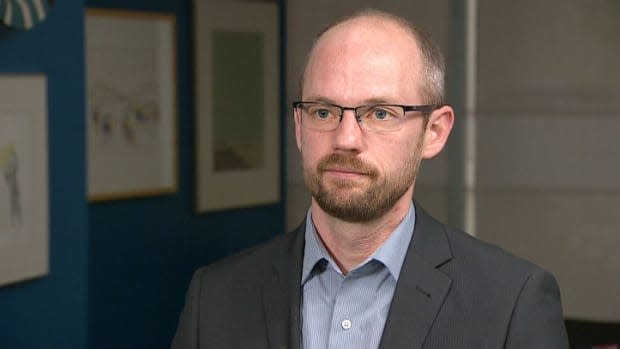New Brunswick warned it may have to share its lucrative equalization payments
Premier Blaine Higgs' concern that the COVID-19 pandemic could threaten the long-term financial support New Brunswick receives from Ottawa has turned out to be prophetic, a new report by a national think-tank shows.
Ben Eisen and Milagros Palacios of the Fraser Institute released a study Thursday suggesting contractions in the economy caused by the pandemic and other forces are flattening economic differences across the country and hastening the creation of new have-not provinces.
The new order would dilute the federal government's critical $21 billion equalization program – New Brunswick's most important source of support.
"It's a fundamentally transformative change," Eisen said in an interview.
"Where there used to be a big gap between the so-called haves and have-nots, I'm not even sure that bifurcation makes sense any more."

Five have-not provinces are currently eligible for money under the program's formula, including Manitoba, Quebec and all three Maritime provinces.
As Canada's poorest province, New Brunswick is receiving a record $2.2 billion in equalization funding this year, 10.7 per cent of the entire federal funding pool.
The amount to New Brunswick has grown by $502 million in the last four years, an amount boosted in part when Ontario stopped receiving money two years ago.
But as quickly as equalization payments can escalate for poor provinces when national economic disparities are growing, they can also recede, either by a poor province getting richer or rich provinces getting poorer.
Eisen said economic data has been revealing a steady "convergence" between rich and poor provinces for several years that has accelerated during the pandemic, moving some like Newfoundland and Labrador and Ontario close to requalifying for equalization money.
He claimed changes are so dramatic it is not out of the question that Alberta will become a have-not province in this decade, a development with major implications for provinces currently in the equalization pool.
"There's a set amount of equalization dollars. If a new province becomes eligible for equalization payments, what's left for the other provinces that were receiving them before goes down," said Eisen.
"If you think of everyone eating a pizza and one more person comes and sits down, that's obviously less for the people who were there before. Equalization is no different."

Tombe is an associate professor of economics at the University of Calgary and one of Canada's leading experts on equalization.
He calls research behind the new study "top notch," but says it is difficult to predict what will happen in the near term.
"Forecasting these days is tricky, to say the least," Tombe said in a message Thursday.
Equalization is based on three-year rolling averages of economic activity and works from a formula completely in the hands of the federal government, which can change the formula as it wishes.

The formula also has protections built in to shield the poorest of provinces and, according to Tombe, that means equalization cuts are less of a threat to New Brunswick than to Nova Scotia, Quebec and Manitoba.
"Those (with economies) furthest from the national average will tend to gain relative to those closer to it," Tombe said. "Hence Prince Edward Island and New Brunswick aren't as likely to be adversely affected."
Higgs has been expressing concern since last spring about the federal government's ability to sustain funding of the equalization program and the effect Alberta's economic troubles might have on how the formula works.
Given the projections of the hole being dug federally, it's like, 'we won't worry about that today.' Well, for me, I'm very worried about it. - Premier Blaine Higgs
"I'm very concerned about next year and our transfer payments, because I don't know what's left in the federal government," he said in May.
"Given the projections of the hole being dug federally, it's like, 'well, we won't worry about that today. We'll worry about that tomorrow or the next day,' or maybe someone believes they'll never have to worry about it. Well, for me, I'm very worried about it and very concerned."
Eisen believes it's likely more provinces will qualify for equalization, and that provinces in the program should prepare for what that could mean.
"It's important to recognize this is a development that could very well affect the budgets of Maritime provinces," he said.


